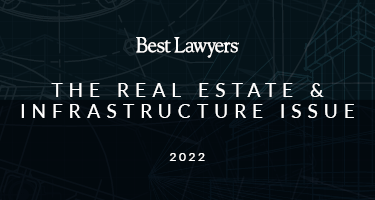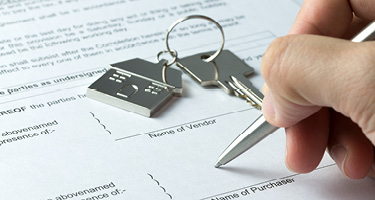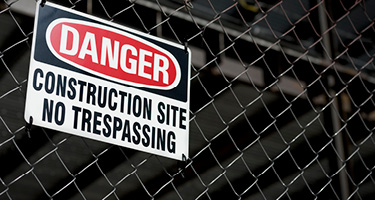A handshake is a universal gesture of trust. COVID-19 notwithstanding, we often shake hands during introductions, farewells and everything in between—and one such occasion is an agreement.
But what happens when no action is taken following a handshake or oral agreement, either because of dishonesty or genuine forgetfulness? Since 2020, these scenarios have emerged more frequently in the arena of real estate and are impacting lawyers on both sides of the aisle. Understanding what type of agreement is enforceable, and where, is key to successful representation.
Michael Rikon, CRE is a name partner at Goldstein Rikon Rikon & Levi, P.C. and has practiced in real estate, eminent domain and condemnation law in New York for nearly 40 years. He said that generally, real estate matters are not bound by handshakes in New York and many other states, due to the their statutes of frauds.
The statute of frauds is a common law concept that requires written contracts for certain agreements to be binding. Most states have their statute, which generally applies to land sales and most purchases of goods valued at more than $500.
“The statue of frauds is found in the general obligation law, which provides that any sale or agreement for the sale of your property or even a tenancy for more than a year must be in writing,” said Rikon, who has been recognized by Best Lawyers® for Eminent Domain and Condemnation Law since 2007. “So with regard to a handshake deal, they could always get a second offer and take that one.”
The statute of frauds may prevent that first handshake from holding any water later. But that has not kept claimants from bringing the matter before a judge. Rikon said he had represented a commercial tenant years ago in a matter stemming from a handshake with a building owner who had passed away. The gesture alone, he said, did not seal the deal for his client.
“My client also had an executor sign a letter saying that he had the right to purchase the property at a certain price, ”Rikon said. “But the other side refused to go forward with it. And there turned out to be more than one executor, and so that made it unenforceable because you needed a majority of executors.”
Rikon renegotiated the price afterward and was able to make a new deal. “We put that in writing,” he said.
These experiences underscore the importance of documentation when in-person meetings are less frequent—and possibly even unsafe to conduct in the wake of the pandemic. Video conferencing, texting and emailing are all held to different standards than traditional discussions. “I've seen contracts that were held binding as a result of reciprocal emails, as long as they had the necessary elements for a contract,” Rikon said.
Oral Agreements, Modifications and Unequivocally Referable Conduct
Oral agreements have created legal challenges during the pandemic as well, as so much might have (or not have) been said. Harris St. Laurent & Wechsler LLP Partner Adam Oppenheim litigated a transaction based on an oral agreement in New York in 2021 on behalf of a purchaser trying to recover a down payment.
“After the initial COVID-19 outbreak in the U.S. in 2020, the seller agreed—orally—to return the down payment upon a far greater number of contingent events than what was originally agreed to in the parties’ pooling and servicing agreement,” Oppenheim said. “Thankfully, that oral agreement was reflected in a number of contemporaneous writings and other evidence of the seller’s ‘unequivocally referable’ conduct. Knowing how the issue would be treated by New York courts, the seller’s attempt to retain the deposit based on the original written contract was quickly abandoned during settlement negotiations. Ultimately, my client got his money back.”
Oppenheim believes clients will continue to renege on handshakes and oral agreements against the backdrop of COVID-19. He noted an uptick in oral modifications to existing agreements and expects them to permeate various commercial and real estate matters—from leasing to purchasing.
“That reflects what I think happened most often in the last few years, where one party to a contract said something to the effect of, ‘Because of COVID-19, I can’t pay you what I once agreed to pay you,’” Oppenheim said. “In the face of a dim alternative—whether that be foreclosure, eviction, the loss of an investor or the collapse of a project—a lot of deals were modified. What I’ve seen so far is that, in the heat of the moment, those modifications weren’t always written down. And when they were, they weren’t always written down carefully.”
All attorneys should expect to litigate these issues, so recording the discussions either digitally or in writing will help support or disprove claims. In New York and several other states, Oppenheim added, the enforceability of an oral modification is often dependent upon the conduct of the “other side.” So if Party A says an oral modification exists, a court will look to how Party B behaved, and where Party B’s conduct is “unequivocally referable” to the modification, the modification may be enforceable.
The tradition is so robust in New York, Oppenheim noted, that courts have recognized the oral modification of a “no oral modification” clause in a contract.
“If the conduct is truly ‘unequivocally referable,’ attorneys should be ready for the possibility of a finding that a written contract has been orally modified,” he said. “I would expect to see more litigation about the enforceability of oral modifications to existing agreements—whether they are leases, purchase agreements or frankly any of a wide range of agreements in almost every commercial setting.”
Justin Smulison is a professional writer who regularly contributes to Best Lawyers. He was previously a reporter for the New York Law Journal and also led content and production for the Custom Projects Group at ALM Media. In addition to his various credited and uncredited writing projects, he has developed global audiences hosting and producing podcasts and audio interviews for professional organizations and music sites. JustinSmulison.contently.com































